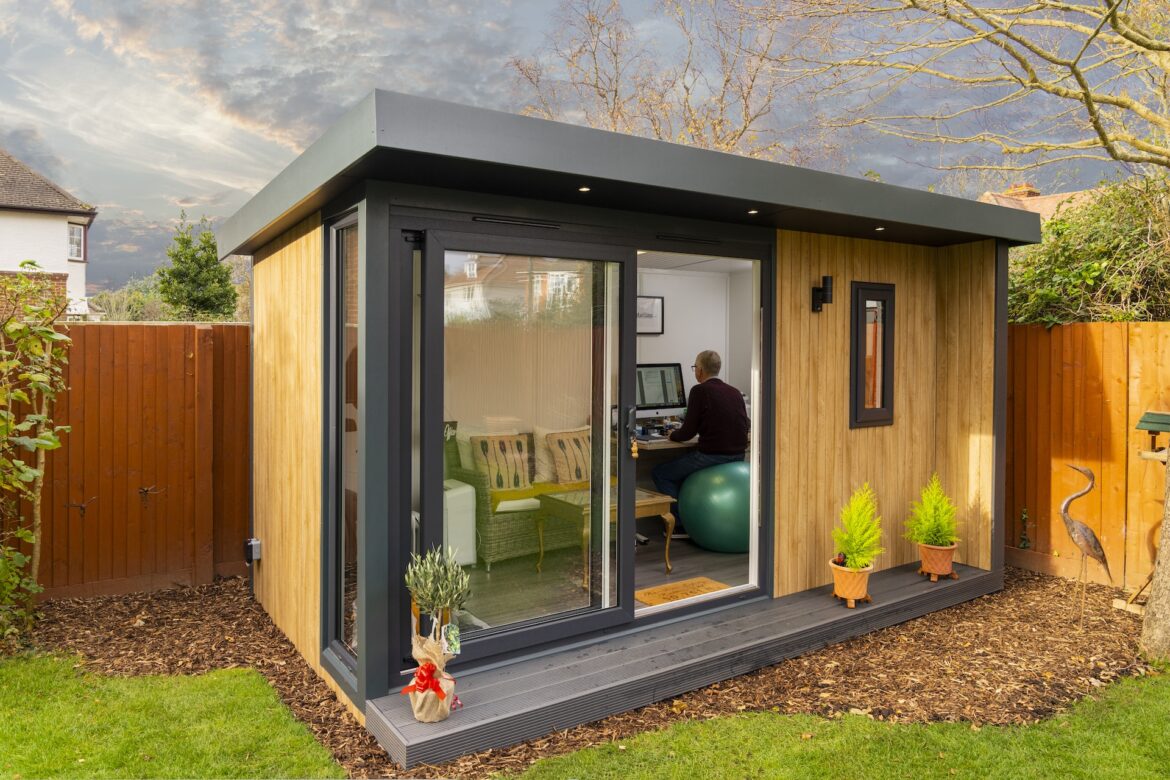Real-Life Examples Across the UK
-
London: In Islington, a sleek timber-clad studio with large bi-fold doors serves as a hybrid office and yoga studio, allowing residents to step out into a private garden oasis.
-
Surrey: A family uses a 25-square-metre studio as a guest room and home office, incorporating fold-away furniture and integrated storage to maintain openness.
-
Cornwall: Coastal cottages feature studios with pitched roofs and natural timber, blending cottage charm with functional workspaces.
-
Manchester: Converted garden sheds with steel frames and industrial finishes house photography studios, balancing urban aesthetic with greenery.
These examples illustrate the adaptability of garden studios, whether in urban or rural contexts, contemporary or traditional settings.
Design Tips for a Successful Garden Studio
-
Maximise Natural Light: Large windows and skylights not only improve wellbeing but also visually expand the space.
-
Choose Multi-Purpose Furniture: Foldable desks, modular shelving, and convertible seating enhance usability.
-
Maintain Visual Continuity: Harmonize interior colours and materials with the main house and garden to create cohesion.
-
Prioritise Insulation: Good thermal performance ensures year-round comfort.
-
Integrate Nature: Greenery, indoor plants, and outdoor views improve mood and connection to the environment.
By focusing on these elements, homeowners can ensure that their garden studio feels inviting, functional, and aesthetically pleasing.
Future Trends
Looking ahead, garden studios are expected to evolve further:
-
Pre-fabricated modular units will simplify installation and reduce construction time.
-
Increased sustainability through zero-carbon materials and off-grid capabilities.
-
Personalisation and smart integration will allow users to configure studios to their unique needs, from home offices to micro-libraries or wellness spaces.
-
Blurring boundaries between indoor and outdoor living, with verandas, pergolas, and integrated landscaping enhancing connection to nature.
These developments signal that garden studios are not merely temporary trends but enduring solutions for modern living.
Conclusion: The Garden as an Extension of Life
The rise of garden studios across the UK illustrates a profound shift in how people value their outdoor spaces. No longer simply decorative, gardens now house functional, comfortable, and stylish extensions of the home. Whether as offices, creative spaces, or private retreats, garden studios offer a flexible solution to modern living, responding to work, lifestyle, and wellbeing needs.
In 2025, the UK’s garden studio movement shows that thoughtful design can transform even modest outdoor areas into inspiring, practical, and beautiful environments. Small in footprint but rich in potential, these structures demonstrate that the most meaningful additions to a home are those that enhance how we live, work, and connect with our surroundings.

